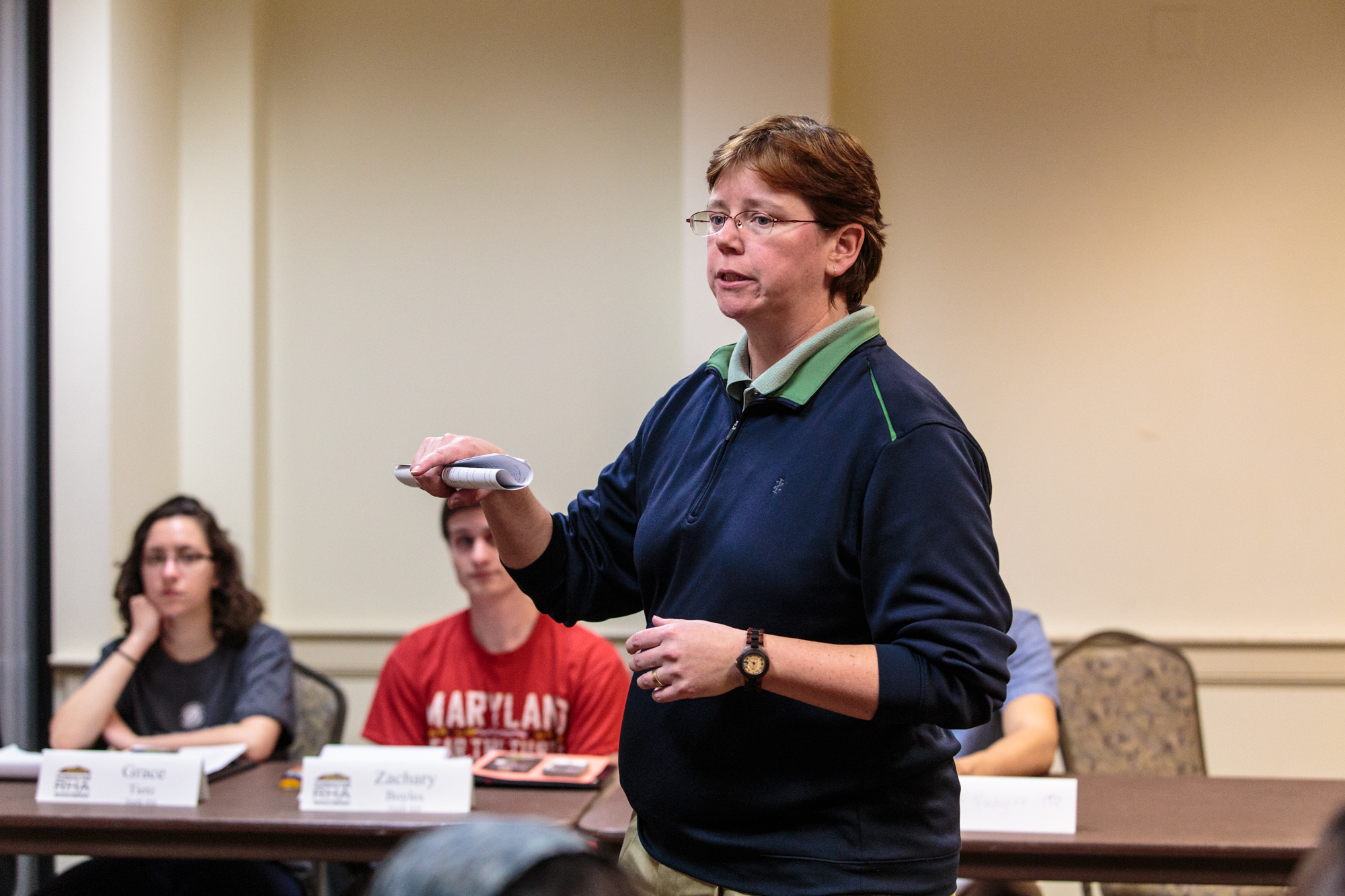The University of Maryland Department of Resident Life unveiled its preliminary plans for a substance-free housing pilot program last week after a semester of research and deliberation.
Although dorms at this university have a strict no-drug policy and no-alcohol policy for those under 21, this program will be geared toward students interested in living with peers who are also committed to abstaining from drugs and alcohol, said Erin Iverson, Department of Resident Life’s manager of assignments and public inquiry, at a Residence Hall Association senate meeting on March 1.
Resident Life began exploring substance-free housing last fall after receiving student interest, as well as reviewing policies at other Big Ten schools, said Lexi Duncan, chairwoman of the RHA Resident Life Advisory Team.
In response to these interests, Iverson said Resident Life is planning a two-phased pilot program that would gauge the response and effectiveness of designated substance-free housing. In fall 2016 the department plans to add sections to the RoomSync application so students can specify their preference for substance-free living.
“It was a joint decision [between Resident Life and the RHA] to look into it,” said Duncan, a freshman psychology major. “We didn’t talk much about it in the fall semester because ResLife was doing research, but after winter break they presented to us and we gave them approval to talk with the senate.”
Resident Life found through a survey that 18 percent of current resident hall students would be interested in substance-free living, Iverson said during a presentation to the RHA senate.
Duncan said she believes this is a significant number of students whose preferences need to be addressed.
“Eighteen percent is a fairly large number when you consider how many students live on campus,” Duncan said. “It just gives an opportunity for students who aren’t interested in the party scene and are more interested in their general wellness.”
There are also plans to add sections to the community living agreement, which roommates fill out at the beginning of each year, as Iverson said 68 percent of students who indicated interest in substance-free living said a pledge between roommates would be enough to satisfy their needs.
The department is also working on phase two of the program, which involves selecting the hall where each student will pledge to be substance-free. Initial plans are to use Carroll Hall, which houses about 121 residents, in the fall 2017.
“We’re starting with a small hall,” Duncan said. “We don’t think there will be an issue filling [Carroll Hall’s beds] up.”
Despite general optimism from Resident Life and the RHA Resident Life Advisory Team, some students expressed skepticism toward successful implementation of substance-free housing.
“It’s a valiant effort, but I’m a bit more concerned about how it will play out once it’s in practice, rather than just a policy,” said Joshua Fleming, a freshman computer engineering major. “No matter what people put on their forms, they might change their outlook coming into college. I know, especially as freshman, some people, they’re not really into that stuff.”
There was also concern over how substance-free agreements will be enforced. Iverson said that other institutions find success when students police themselves.
Some students at this university, however, disagreed with this assessment.
“I feel like within the dorms, students wouldn’t want to police other students,” said Michaela Shields, a sophomore criminology and criminal justice and English major. “Especially if it wasn’t like a big issue — if they were just going out and partying but not, like, blacking out every weekend — I don’t think they’d be willing to get them to stop.”
Some students also said creating a dorm pledged to substance-free life might create a stigma about its residents.
“It’s a good thing to have for people, as long as it’s an opt-in kind of thing,” said Matt Mazzanti, a freshman computer science major. “If you want to live substance free and want people around you to be substance free, I think that’s perfectly fine. It gives you a little more control over your life.”



